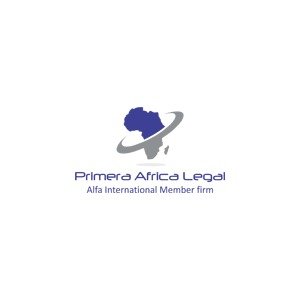Best Oil, Gas & Energy Lawyers in Abuja
Share your needs with us, get contacted by law firms.
Free. Takes 2 min.
List of the best lawyers in Abuja, Nigeria
About Oil, Gas & Energy Law in Abuja, Nigeria
Oil, gas, and energy are vital sectors in Abuja, Nigeria, contributing significantly to the country's economy. Abuja, being the capital, is a hub for various oil, gas, and energy-related activities. The legal framework governing these sectors involves complex laws and regulations, which ensure the sustainable development and efficient management of these valuable resources.
Why You May Need a Lawyer
Legal assistance may be necessary in various situations within the Oil, Gas & Energy industry. Here are some common scenarios where a lawyer's expertise can be beneficial:
- Contract drafting and negotiation: Lawyers can help ensure fair and legally binding agreements in contracts related to exploration, production, and supply of oil, gas, and energy.
- Dispute resolution: If disputes arise, legal representation can aid in resolving conflicts related to oil and gas contracts, land use, environmental concerns, or other issues.
- Compliance and regulatory issues: Lawyers can assist in navigating the complex web of regulations, permits, and licenses that govern the oil, gas, and energy sectors in Abuja.
- Property rights and acquisitions: Legal advice is crucial when dealing with land rights, leases, acquisitions, and transfer of interests in oil, gas, and energy assets.
Local Laws Overview
Understanding the key aspects of local laws that are relevant to the Oil, Gas & Energy sector in Abuja, Nigeria is essential. Here is a summary of some important legal considerations:
- Constitutional provisions: The Constitution of Nigeria vests ownership and control of all minerals, including oil and gas, in the government.
- Regulatory bodies: The Department of Petroleum Resources (DPR) is responsible for regulating and supervising activities in the oil and gas industry, ensuring compliance with relevant laws.
- Petroleum Act: This act provides the legal framework for the exploration, production, and marketing of petroleum resources, and establishes guidelines for licensing, royalties, and taxation.
- National Oil Spill Detection and Response Agency (NOSDRA) Act: This legislation is aimed at preventing and responding to oil spills, protecting the environment, and ensuring the remediation of affected areas.
- Environmental laws: Various environmental laws and regulations address the protection of the environment, biodiversity, and sustainable practices in the oil, gas, and energy industry.
Frequently Asked Questions
1. Can individuals or private companies own oil and gas resources in Abuja, Nigeria?
No, the government of Nigeria owns all minerals, including oil and gas resources. However, individuals or private companies can enter into agreements with the government to explore, produce, and participate in the oil and gas industry through leases, licenses, or joint ventures.
2. What are the consequences of non-compliance with oil and gas regulations in Abuja?
Non-compliance with oil and gas regulations can result in penalties, fines, or possible revocation of licenses or permits. It is vital to ensure strict adherence to all applicable regulations to avoid legal issues and reputational damage.
3. Are there any environmental regulations specific to the oil, gas, and energy sector in Abuja?
Yes, Abuja has various environmental laws and regulations that govern the oil, gas, and energy sector. These regulations aim to protect the environment, regulate waste management, prevent pollution, and ensure sustainable practices in the industry.
4. How can I resolve a contractual dispute in the oil and gas industry in Abuja?
If you encounter a contractual dispute, it is advisable to consult a lawyer who specializes in oil, gas, and energy law. They can help explore negotiation, mediation, or litigation options based on the specific circumstances of the dispute.
5. What permits or licenses are required for oil, gas, and energy-related activities in Abuja?
Several permits and licenses are necessary for oil, gas, and energy-related activities in Abuja. These may include exploration licenses, production licenses, environmental permits, and various other regulatory approvals. Legal professionals can guide you through the requirements based on your specific operations.
Additional Resources
For further information and assistance related to Oil, Gas & Energy in Abuja, Nigeria, the following resources may be helpful:
- Department of Petroleum Resources (DPR) - dpr.gov.ng
- Nigerian National Petroleum Corporation (NNPC) - nnpcgroup.com
- Nigeria Extractive Industries Transparency Initiative (NEITI) - neiti.gov.ng
Next Steps
If you require legal assistance in the field of Oil, Gas & Energy in Abuja, Nigeria, it is advisable to:
- Identify your specific legal needs within the industry.
- Research and choose a lawyer with expertise in oil, gas, and energy law.
- Schedule a consultation to discuss your requirements and seek professional advice.
- Compile all relevant documents and provide them to your lawyer for review.
- Work closely with your lawyer throughout the legal process, adhering to their guidance and advice.
Lawzana helps you find the best lawyers and law firms in Abuja through a curated and pre-screened list of qualified legal professionals. Our platform offers rankings and detailed profiles of attorneys and law firms, allowing you to compare based on practice areas, including Oil, Gas & Energy, experience, and client feedback.
Each profile includes a description of the firm's areas of practice, client reviews, team members and partners, year of establishment, spoken languages, office locations, contact information, social media presence, and any published articles or resources. Most firms on our platform speak English and are experienced in both local and international legal matters.
Get a quote from top-rated law firms in Abuja, Nigeria — quickly, securely, and without unnecessary hassle.
Disclaimer:
The information provided on this page is for general informational purposes only and does not constitute legal advice. While we strive to ensure the accuracy and relevance of the content, legal information may change over time, and interpretations of the law can vary. You should always consult with a qualified legal professional for advice specific to your situation.
We disclaim all liability for actions taken or not taken based on the content of this page. If you believe any information is incorrect or outdated, please contact us, and we will review and update it where appropriate.

















